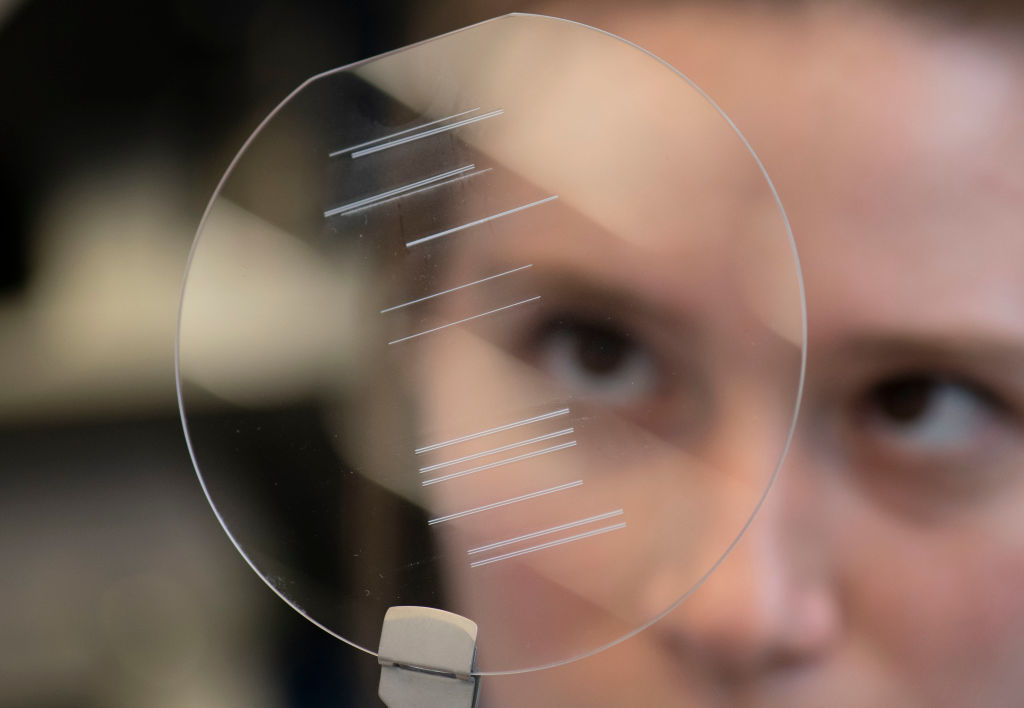Bronte Munro and Tristan Paci

Experts anticipate that scalable quantum technologies will arrive within five to 10 years, and that they will be highly disruptive to the commercial sector and to national security. The AUKUS partners are already working collaboratively on scaling quantum technology innovation and implementation, but there’s a parallel need to develop standards to address the potential regulatory, ethical, intelligence, commercial and legal implications of novel quantum technologies.
Take, for instance, how these new technologies might transform everyday computer processing. Quantum computing will enable complex problems to be solved very quickly, which will transform the work being done across a range of sectors, such as medical research, food security and climate change.
Quantum computers are different from conventional computers in many ways, but, critically, they store and interpret data in quantum bits, or ‘qubits’, rather than ‘bits’. Bits are the ones and zeros that get strung together sequentially to direct a computer’s processes. By comparison, qubits can exist as ones and zeros simultaneously, or in a state of suspension, which allows them to perform many calculations at the same time. The result is exponentially greater processing power. As Nobel Laureate Bill Phillips once observed, quantum computers are ‘more fundamentally different from current technology than the digital computer is from the abacus’.
Because scalable quantum technologies are just around the corner, the world must prepare for their arrival, but again, we find ourselves behind the curve. As a 2021 ASPI report, An Australian strategy for the quantum revolution, pointed out, if a quantum computer is developed without changing the encryption standards that underpin the internet, it will be catastrophic for network security because the existing security infrastructure will be redundant.
Of particular concern is the likelihood that quantum computers will be able to crack even highly resistant encryption. That would render vulnerable all public-key encryption that’s used around the world today for digital messaging and secure transactions such as online banking. Anne Neuberger, the US deputy national security adviser for cyber and emerging technology, has called quantum computing a ‘nuclear threat to cybersecurity’.
The AUKUS agreement is unique because it proposes practical technological engagement between the public and private sectors from the US, Australia, and the UK on the development of quantum technologies. Quantum technology is one of the eight advanced capabilities outlined under the AUKUS agreement’s second pillar, which focuses on advanced capability acquisition.
The AUKUS Quantum Arrangement announced last year will have an initial focus on quantum technologies for positioning, navigation and timing through trials and experimentation over a three-year period. The practicalities of the arrangement are expected to be made public later this month as part of the AUKUS pathways announcement, which will outline how the objectives of the agreement are going to be achieved, notably in relation to Australia acquiring nuclear-powered submarines.
While we don’t yet know whether standards development for quantum technologies will be, or is already, incorporated into AUKUS activities, the issue feeds into a greater concern that for AUKUS to succeed, increased transparency is needed around the activities of the Pillar 2 working groups. Private-sector entities—whose private capital is fuelling much of the early development of this game-changing technology—engaged in this work need to understand what the AUKUS partners are trying to achieve and where the rest of the ecosystem can be poised to support.
Many quantum technologies will have dual defence and commercial applications. Without open communication between the public and private sectors, it will be difficult to ensure that normative safeguards are developed and incorporated into the design process—and eventually the distribution—of these transformative technologies.
Crucially, parallel to the practical collaborative aspects of Pillar 2, the AUKUS partners should capitalise on the opportunity to consider the potential implications of quantum technologies and work with the private sector to prepare for the opportunities and challenges that will arise. The costs and risks of not doing so are significant. One is that the critical technology field may be ceded to state actors that are likely to put their interests ahead of the safety of the international community.
At the same time, though, mutually agreed norms won’t prevent abuses of quantum technologies. Yet without a sense of urgency and focus on the policy implications, the AUKUS partners will lose the opportunity to shape the standards by which the rest of the world will use this technology.
In the current era of strategic competition, shared understanding of the dos and don’ts for using and responding to critical and emerging technologies takes on additional importance. In an apparent effort to stack the deck in its favour, China has increased its influence on international technology standard-setting through lobbying tactics and strategic investment. It is therefore critical for like-minded public- and private-sector partners to collaborate in establishing allied, if not global, standards for a quantum future.
No comments:
Post a Comment